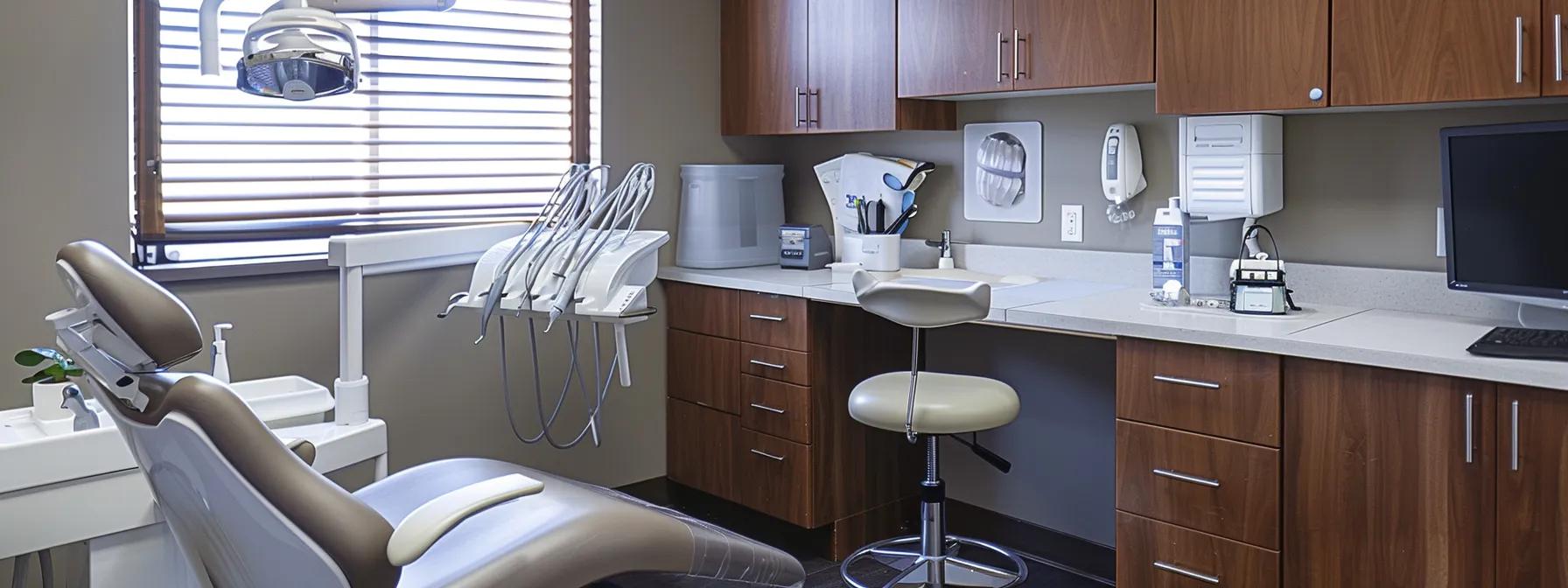The Dental Implant Procedure Demystified
To fully understand what the dental implant procedure involves, it’s helpful to break it down into three key stages: planning, surgery, and recovery. Each of these stages is critical to the success of the overall treatment, and understanding them helps manage expectations while preparing you for what lies ahead.
The first stage is the planning phase. This includes your initial consultation, where detailed measurements and digital imaging of your mouth are taken. We’ll discuss your treatment goals and evaluate your oral health to ensure you’re a good candidate. Think of this stage as the blueprint process—every detail matters to ensure proper placement and long-term success.
The second and third stages include the actual implant surgery and the recovery that follows. During surgery, a titanium post is inserted into the jawbone to act as the new root of your tooth. Post-surgery, healing takes several months as the implant fuses with the bone. Recovery includes follow-ups, soft food diets, and a strict oral hygiene regimen to ensure proper integration.
Understanding Dental Implants
Choosing dental implants is more than just selecting a tooth replacement—it’s a decision that affects your long-term oral health and overall confidence. That’s why it’s important to understand how they work, their benefits, and how they compare to other options.
Implants consist of a small titanium post that replaces the root of the missing tooth. This post supports a custom-made crown, which mimics the look and function of a natural tooth. Unlike removable dentures or bridges, implants are anchored in place and don’t shift or slip during use.
Beyond cosmetic improvement, dental implants protect against bone loss, maintain the shape of your face, and preserve the alignment of surrounding teeth. They’re also cost-effective in the long run—while the upfront cost may be higher than other solutions, their longevity and reliability make them a wise investment.
Focusing on Precision in Dental Implant Surgery
Successful dental implant procedures rely heavily on precision. That’s why at Dynamic Family Dentistry, we use advanced tools and expertise to ensure every implant is placed with the highest level of care and accuracy.
One of the biggest challenges in implant placement is avoiding sensitive nerves in the jaw. Our clinicians use digital imaging and 3D mapping technology to guide the placement of each implant, avoiding nerve pathways and optimizing stability. This step is crucial for both patient comfort and long-term implant health.
We also personalize each implant procedure. From selecting the right type of implant material to tailoring the angle and depth of placement, every detail is designed to match your anatomy. Just like tailoring a suit to fit perfectly, our implant procedures are crafted for long-lasting comfort and performance.
Education on the Benefits of Dental Implants
Patients often believe implants are solely a cosmetic fix, but the truth is they provide substantial health benefits too. Education is key in helping patients understand why implants are often the preferred choice for tooth replacement.
First, implants prevent neighboring teeth from shifting and maintain the alignment of your bite. They also provide stimulation to the jawbone, preventing the bone deterioration that typically follows tooth loss. This is vital for maintaining your facial structure and avoiding the sunken look that can occur with prolonged missing teeth.
Second, implants support better nutrition and digestion. Because they restore full chewing power, patients can enjoy a wider variety of foods, which helps maintain overall health. The added bonus? You’ll likely speak more clearly and smile with confidence, knowing your replacement teeth look natural and feel secure.
Managing Post-Surgical Recovery
The healing phase after dental implant surgery is essential to the success of your treatment. At Dynamic Family Dentistry, we provide a detailed aftercare plan to support you through recovery and help ensure the long-term stability of your implant.
Immediately after the procedure, patients are advised to eat soft foods, take prescribed medications, and avoid physical activity for a few days. Like tending to a newly planted tree, gentle care during this early phase allows your implant to bond successfully with your bone.
In addition to dietary guidance, we help patients manage pain and inflammation. Techniques such as cold compresses, saltwater rinses, and OTC pain medications can ease discomfort. Most importantly, we remain available for questions and check-ins, and we schedule follow-ups to assess your progress and catch any early warning signs.

Our Comprehensive Approach to Dental Implant Challenges
No two implant cases are alike, and every patient brings their own set of health needs and treatment goals. That’s why we’ve built a comprehensive approach to dental implants that includes advanced diagnostics, expert communication, and thorough aftercare.
We begin with diagnostics. Our 3D cone beam scans allow us to see the full picture of your oral anatomy, helping us plan the best path forward. We assess bone density, nerve placement, and sinus proximity—just like an architect evaluates a site before building.
Next, we make sure our patients are fully informed. We explain each step of the implant process and address questions or concerns with clear, honest communication. Patients who understand their treatment tend to be more confident and engaged in their recovery process.
Finally, aftercare is where we shine. You’ll receive a step-by-step guide for maintaining your implant, and we’ll walk with you through follow-up visits and touchpoints to ensure your healing stays on track. Our team stays available to you at every stage of your journey.
Criteria for Informed Dental Implant Decisions
At Dynamic Family Dentistry, we ensure that every patient considering dental implants is equipped with the right information to make an informed decision. We examine three primary factors: bone density, health conditions, and healing capability.
First, adequate bone support is a must. Implants require a strong foundation in the jaw, and not all patients start with this. If we detect insufficient bone, we may recommend bone grafting to prepare the site—just like reinforcing a foundation before building on it.
Next, we evaluate medical history. Conditions like diabetes or immune disorders can slow healing or increase the risk of complications. When necessary, we coordinate care with your physician to ensure implant placement is safe and well-timed.
Finally, we look at your lifestyle and oral hygiene habits. Implants demand care and consistency. Patients who commit to brushing, flossing, and attending regular check-ups are typically excellent candidates for long-term success.
Our Commitment to Comprehensive Support and Guidance
We know that choosing dental implants is a big decision, and we’re here to support you every step of the way. At Dynamic Family Dentistry, our approach is built on communication, trust, and genuine patient care.
From your first consultation, we work to understand your unique needs. We use digital tools to show you the possible outcomes, and we build a treatment plan that’s both realistic and inspiring. Every step is explained, every question is answered, and every goal is considered.
During treatment, we prioritize your comfort with sedation options, music, and friendly staff who are always ready to make your visit more pleasant. After treatment, we don’t disappear—we follow up, we check in, and we’re always here if you have concerns.
Ensuring the Longevity of Your Dental Implants
Once your implant is placed and healed, your job is to maintain it. Fortunately, this doesn’t require anything fancy—just smart, consistent oral hygiene and healthy lifestyle choices.
Daily brushing and flossing are essential. While implants can’t get cavities, the surrounding gum tissue can become infected, leading to complications. An electric toothbrush and floss threader or water flosser can help you clean thoroughly around your implant.
We also recommend you steer clear of habits that can compromise your implant. Smoking, grinding teeth, and chewing ice or hard candy can all weaken the bone or damage the implant structure. Regular dental visits will help us spot any concerns early.
Final Thoughts on the Value of Dental Implants
Dental implants are more than just a solution for missing teeth—they’re a long-term investment in your appearance, your oral health, and your confidence. When placed and maintained correctly, they can last a lifetime.
At Dynamic Family Dentistry, we combine the best of modern technology with personalized patient care to ensure you get the results you deserve. From consultation through aftercare, we’re with you every step of the way, offering transparent pricing, honest advice, and top-tier care.
We believe everyone deserves a confident smile and a healthy mouth. If you’re ready to learn more, we’d be honored to guide you through the process and help you take the next step toward a stronger, brighter future.
Dr. Scott Kennedy and the team at Dynamic Family Dentistry are here to help you achieve the bright, confident smile you’ve always wanted. Book a consultation today to learn more about dental emergencies in Clifton, TX, and take the first step toward a radiant smile!
Dynamic Family Dentistry
302 S. Avenue Q, Clifton, Texas Phone: (254) 675-3518
Related Articles
Dental Emergency, Understanding Emergency Root Canals, Emergency Extractions, Protection During Dental Emergencies, Lost a Filling or Crown Tips, What’s an Emergency Dentist
Frequently Asked Questions
What is the success rate of dental implants?
Dental implants have a success rate of over 90%, particularly when placed by skilled professionals and properly maintained. At Dynamic Family Dentistry, we aim for excellence in every case.
Is the implant procedure painful?
No. The procedure is done under anesthesia, so you’ll feel little to no pain during the process. Post-surgical discomfort is typically mild and managed with medication and aftercare support.
How long will my dental implant last?
With proper care—including brushing, flossing, and regular checkups—your implant can last decades, even a lifetime. It’s a long-term solution designed for durability and strength.


